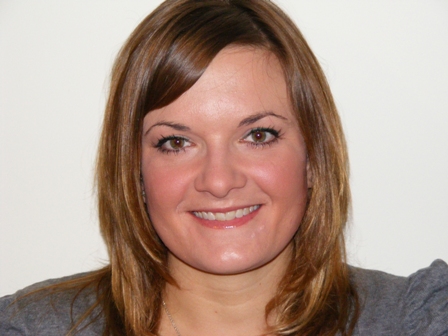Five hours of "top-quality culture" but who will decide which is which and where will they put it in a packed curriculum?
Edition number 10; dateline 15 February 2008
Considering the future for world-class leisure
Martyn Allison is among the speakers at an event being held in Huddersfield at the end of the month to consider future approaches to the delivery of leisure and cultural services. Martyn, who was featured in the December issue of The Leisure Review, will be looking at the work of the IDeA cultural improvement unit and the implications of the improvement journey on the provision of leisure and cultural services. Also on the programme are Dave Hewson from Sport England North West looking at market segmentation, Andy Farr from PMP on the trust sector and Roger Pontefract on commissioning within sport, leisure and culture. The event is titled ‘World-class leisure and cultural services – where next?’ kicks off at 9.30am on 26 February and is presented by Sporta in association with the IDeA, Sport England and ISPAL. Full details are available from Lisa Collins at Sporta care of Oldham Community Leisure Limited. You can e-mail her from here.
Five hours of culture a week
Leisure and culture enjoyed another period in the political spotlight this week with the announcement of a government plan to deliver five hours of culture for every school pupil every week. Culture secretary Andy Burnham and children’s secretary Ed Balls took to the stage of the Young Vic on Wednesday (13 February) to lift the curtain on a scheme to enable pupils to engage with cultural pursuits of all kinds, whether as participant or audience. Mr Balls summarised the plan in terms of cultural enrichment. “All children and young people should have the chance to experience top-quality culture, whether that is seeing a play or dance performance, learning a musical instrument or producing some creative writing,” he said. “Many of us remember the first ever live music we heard or the first ever performance we saw. I want all young people to have the chance to experience and take part in creative activities to help them learn and develop.” Beneath the exciting outline of a commitment to culture in education the details suggested that some difficult questions remain to be answered. The emphasis on “high-quality cultural activities” raised the age-old issue of how one defines quality within the arts. Defining cultural activity followed close behind, with some noting the mention of creating writing as a potential soft option for hard-pressed timetables. Time to deliver this aspiration was another issue quickly raised by teachers already working with the aspiration of the ‘five hour offer’ of sport each week and the ever-present requirements of the government’s testing regime. It fell to Andy Burnham to ponder some of these. Speaking to the BBC, he said, “Some of this could be delivered in the school day but we also want to give young people the opportunity to do more out of the school day. The idea of the scheme we’re putting forward is very much for schools and local authorities to come forward with their plans of how they would deliver it.”
New badge for risk management suggested for leisure
Plans to encourage school trips by reducing bureaucracy for teachers looks to be at least partially based on an expansion of bureaucracy for the leisure and culture sector. New Department for Children, Schools and Families (DCSF) guidance on risk management for school trips, titled The Staying Safe Action Plan, includes proposals for a new quality mark for organisations that might offer themselves as venues for pupil visits. This new badge of competence “will help teachers identify places that provide high-quality learning outside of the classroom, and are managing safety effectively”, according to the DCSF. Children secretary Ed Balls suggested that perceptions of a compensation culture should not be permitted to restrict learning experiences. “We need to help parents and teachers strike the right balance between protecting our children and allowing them the freedom to develop and enjoy childhood,” he said. The Staying Safe Action Plan is available at http://www.everychildmatters.gov.uk/staying safe/ and a further guidance on school visits, under the title The Out and About Guidance, will be available in May. The quality badge scheme will begin in September, according to the DCSF.
Who’s whom
DC Leisure has announced the appointment of Polly Westell to the position of group sports development manager. Polly took up the position at the beginning of January, having previously worked on the sports development team at Windsor and Maidenhead Borough Council. Lifetime has added three more individuals to its team: Alex Gillett, Katie Edwards and Ben Brook will be responsible for delivering the company’s NVQ programmes across the UK. Cricket legend John Emburey is to step down as Middlesex's director of cricket to further his career in coaching. “John's role as director of cricket
was becoming more administrative, taking him away from the area of
the game where his strengths lay,” said the county's chief executive, Vinny Codrington. The Scottish Volleyball Association has appointed Margaret Ann Fleming to the post of chief executive. In addition to an extensive background in volleyball, physical education and retail sales she has been president of the Association for the past three years. Meanwhile at Welsh Judo Mrs Niki Adams has been appointed to the post of general manager. Niki is “well known to many members” and is married to the national coach, former Superstar (and judo giant) Neil Adams.
News in brief
Staccato reports from the cultural typeface
Five hours of "top-quality culture" but who will decide which is which and where will they put it in a packed curriculum?
